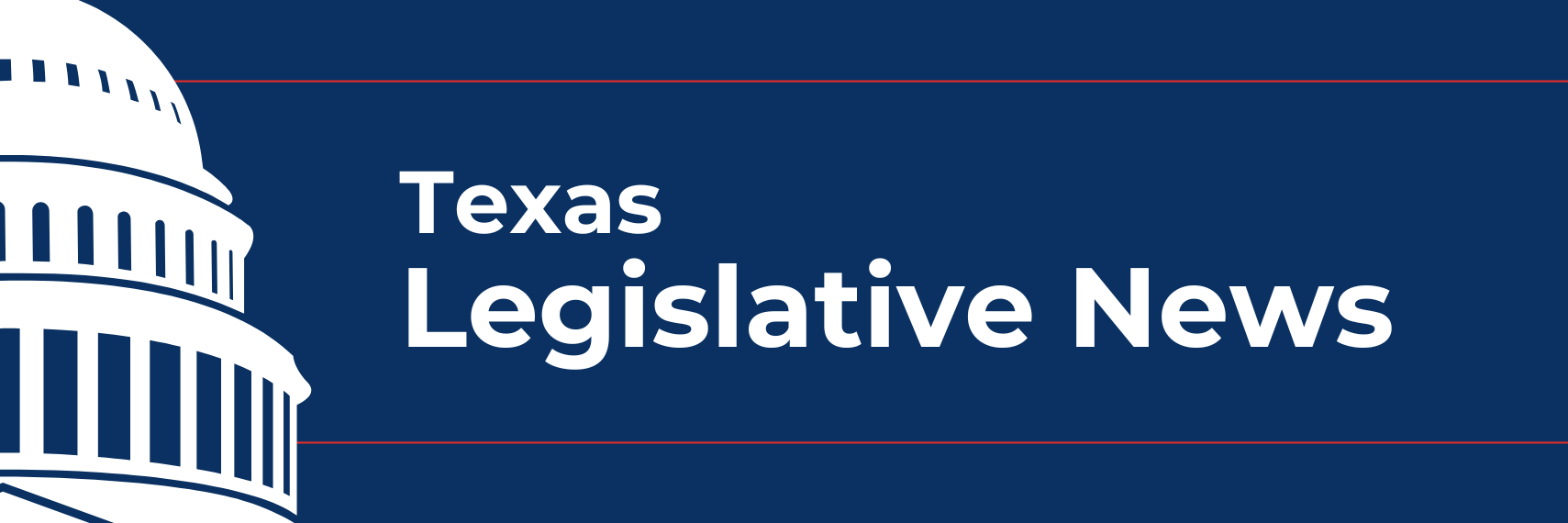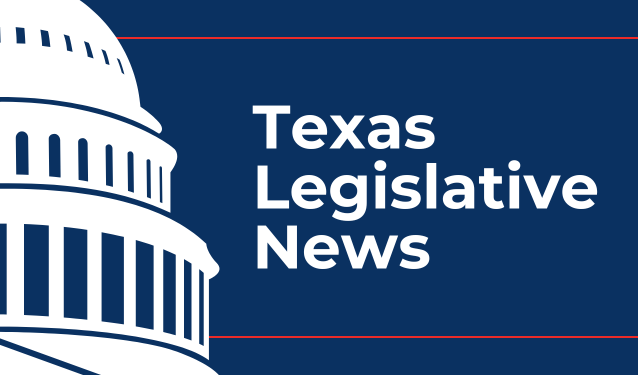

Table of Contents
Welcome to the latest edition of Texas Legislative News for the 89th Texas Legislature. In this regular feature, we provide information on disability-related issues and bills under consideration at the State Capitol. We also explain how lawmakers conduct business, and we share details on upcoming TCDD events.
Session Starts With New House Speaker
Lawmakers convened Tuesday, Jan. 14, for the 89th regular session of the Texas Legislature. They will continue to meet for 140 days and adjourn on Monday, June 2.
The Legislature’s most notable action on opening day came in the House, where members elected Rep. Dustin Burrows as the new House speaker. The speaker position is considered one of the “big three” positions in Texas state government along with the governor and the lieutenant governor. The speaker presides over the House, makes committee appointments, and has a great amount of control over the tone and productivity of the House.
Going into opening day, it was the first time in decades where there were questions about the outcome of the House speaker election. Usually, a single candidate consolidates enough support before the session to make the final vote just a formality. But this time, there was much more uncertainty.
Rep. Dade Phelan, a current House member who served as speaker for the past two sessions, did not run for reelection to the leadership position. There were questions about whether either of the top two candidates running for speaker — Burrows and Rep. David Cook — could meet the House’s 76-vote threshold necessary to win the race. And the presence of a third candidate, Rep. Ana-María Rodríguez Ramos, made the outcome even more complicated to predict.
None of the candidates received a majority of the House vote in an initial count. But in a runoff election, Burrows garnered 85 votes to become the next speaker.
Burrows is an attorney from Lubbock who has served in the House since 2015. Last session, he served on the House Higher Education and Elections committees. He also chaired the House Calendars Committee. Previously, he’s chaired the House Ways and Means Committee. In a speech following his victory, Burrows talked about maintaining the strength of the House as an institution, emphasized the importance of open and respectful policy debates, and committed to “giving every member a voice, every district a seat at the table.”
State Revenue Projections
The other big news of the week came before the Legislature convened. On Monday, Jan. 13, the Texas Comptroller released the state’s biennial revenue estimate, which tells lawmakers the anticipated amount of money they’ll have on hand to craft the state’s two-year budget.
The Comptroller projected that $194.6 billion will be available for general-purpose spending in the 2026-2027 biennium. That total is made up of new revenue and leftover funds from the state’s previous budget cycle.
The projection is a slight drop from what was available last session in 2023, which was literally more than lawmakers have ever had on hand. Still, the estimate amounts to a $23.8 billion surplus coming out of the current biennium. This shows the state is in a good position to continue meeting its current obligations while also making new investments in critical areas.
The state’s Economic Stabilization Fund, which is usually referred to as the “rainy day fund,” is expected to reach $28.5 billion. The record total would exceed the fund’s limit set by the state constitution. In recent sessions, lawmakers were hesitant to tap into the fund, which requires a three-thirds vote to approve. If the fund hits its limit, then any excess dollars would spill over into the state’s general fund.
The Comptroller’s projections do not relate to federal dollars, which tend to make up more than one-third of the overall state budget. Many of those federal dollars are also “matching” funds — meaning that when more state dollars are spent, the amount of federal funding available to Texas can also increase.
The first draft of the appropriations bill will be filed within the next few weeks, which will give us an idea of where lawmakers’ heads are at with the state budget. How to spend those dollars is sure to be one of the primary debates of this session.
Bill Filing Continues
Just two days into the legislative session, over 2,500 bills have been filed for lawmakers to consider in the coming months. Recently filed proposals related to disability issues include:
- House Bill (HB) 1662 by Rep. Charles Cunningham, relating to a grant program for public schools and regional education service centers to provide education services to students with autism.
- HB 1706 by Rep. Josey Garcia, relating to additional requirements for individualized education programs developed for children with autism or other developmental disabilities.
- Senate Bill (SB) 562 by Sen. José Menéndez, relating to health benefit plan coverage for people with autism.
- SB 680 by Sen. Bryan Hughes, relating to drivers being able to notify law enforcement through their vehicle registration that a driver has a health condition or disability that could impact effective communication.
Stay Informed
Throughout the 89th Texas legislative session, you can stay up to date on how lawmakers address disability issues by following us on Facebook, X, Instagram, and LinkedIn. You can also check out our Policy section to learn more about our legislative engagement and find resources to support your own advocacy.
